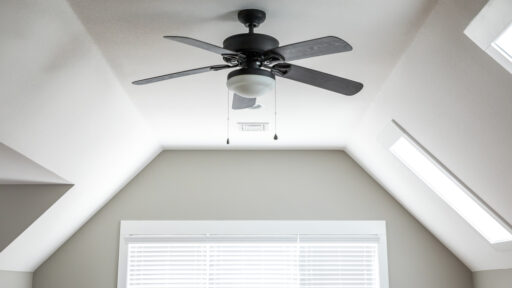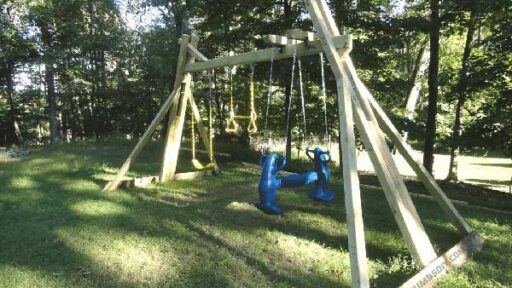As temperatures soar during the summer months, your home’s air conditioning (AC) system becomes more than just a comfort-it’s a necessity. Whether you rely on a central air system, a ductless mini-split, or a window unit, keeping your AC in good working condition is essential for energy efficiency, lower utility bills, and long-term reliability. Regular maintenance helps prevent unexpected breakdowns, extends the life of your unit, and ensures optimal performance when you need it most.
Here are some essential maintenance tips every homeowner should follow to keep their air conditioning system running smoothly all year round. Read on.
Replace or Clean the Air Filter Regularly
The air filter plays a vital role in keeping your AC unit running efficiently by trapping dust, dirt, and other airborne particles. Over time, the filter can become clogged, restricting airflow and forcing the system to work harder.
Replace disposable filters every 1-3 months, depending on usage and filter type. If your system uses reusable filters, clean them with water and let them dry completely before reinserting. Homes with pets, smokers, or allergy sufferers may require more frequent filter changes.
Clean the Condenser Coils
The condenser unit, located outside your home, releases the heat that your indoor unit removes. Dirt, leaves, and other debris can accumulate on the coils, reducing efficiency and increasing energy consumption.
Turn off the power to the unit before cleaning. Use a garden hose (not a pressure washer) to gently rinse off the coils. Trim surrounding vegetation to ensure at least 2 feet of clearance around the unit for proper airflow.
Check and Clear the Condensate Drain Line
The condensate drain removes moisture collected from the air by the evaporator coil. Over time, algae, mold, or debris can clog this line, leading to water damage or increased humidity levels in your home.
Use a wet/dry vacuum to suck out any blockages in the drain line. Flush the line with a cup of vinegar or a mixture of bleach and water to prevent mold growth. Inspect the drain pan under the indoor unit for standing water or rust.
Inspect the Ductwork for Leaks
Leaky or poorly insulated ducts can cause your AC system to lose up to 30% of its efficiency. This leads to uneven cooling and higher energy bills.
Check for visible signs of damage or disconnections in exposed ductwork. Seal minor leaks with foil-backed duct tape or mastic sealant. Hire a professional to perform a thorough duct inspection and airflow test if you suspect more significant issues.
Keep Vents and Registers Unobstructed
Blocked or closed vents can interfere with airflow and pressure in the system, leading to inefficient cooling and possible damage to components.
Ensure furniture, curtains, or rugs aren’t covering any vents. Vacuum dust and debris from vent covers regularly. Keep all vents open-even in unused rooms-to allow balanced airflow.
Program or Upgrade Your Thermostat
A programmable thermostat allows you to set temperature schedules based on your daily routine. This reduces strain on your system and saves energy.
Set the temperature higher when you’re not home (78°F is recommended when occupied, 85°F when away). Consider upgrading to a smart thermostat, which adjusts settings automatically and provides insights into usage patterns. Replace thermostat batteries once a year, or as needed.
Schedule Annual Professional Maintenance
While many tasks can be handled by homeowners, it’s still important to have your system professionally inspected at least once a year, preferably before the cooling season begins. What a technician will typically do:
- Check refrigerant levels and recharge if necessary
- Test for refrigerant leaks
- Inspect and tighten electrical connections
- Lubricate moving parts
- Clean or replace filters
- Calibrate thermostat settings
- Test overall system performance
This preventative maintenance can catch small issues before they become expensive problems. Check out the top-quality air-conditioning repair services in Michigan to learn more.
Listen for Unusual Sounds
Strange noises like grinding, rattling, or buzzing can indicate loose parts, electrical issues, or a failing motor. Noticing these noises can help prevent further damage.
Don’t ignore odd sounds. Address them promptly before they escalate into major breakdowns. If your system is louder than usual, call a technician to diagnose the problem.
Monitor Energy Bills
A sudden spike in your energy bill, without any increase in usage, could be a sign that your system is struggling or malfunctioning. This not only saves you a lot of money but also helps conserve energy.
Compare monthly bills year over year to spot abnormal trends. Combine this with other observations (uneven cooling, system cycling frequently, or unusual noises) to help identify problems early.
Check Insulation and Home Sealing
Even the most efficient air conditioning system can’t compensate for poor insulation or air leaks. Call an expert for better inspection results.
Inspect attic insulation and replace it if it’s old or degraded. Seal leaks around doors, windows, and electrical outlets.
Use weatherstripping and caulk to keep conditioned air from escaping. Good insulation reduces the workload on your AC and helps maintain consistent indoor temperatures.
Keep an Eye on Refrigerant Levels
Refrigerant is the substance your AC uses to absorb and release heat, making effective cooling possible. Low refrigerant levels can severely impact your system’s efficiency and may indicate a leak that requires immediate attention.
If you notice weak airflow, warm air from vents, or ice on the evaporator coil, your system might be low on refrigerant. Do not try to refill refrigerant yourself-it’s a regulated chemical and must be handled by a certified HVAC professional. Annual checkups can help spot and fix leaks before they cause serious damage.
Keep Your Home Air Conditioning System in Good Condition
Your home’s air conditioning system is a complex machine that needs regular attention to function at its best. With just a little time and effort, you can improve performance, extend its lifespan, and reduce costly repairs.
Start with simple tasks like changing filters and clearing debris, then gradually incorporate more advanced maintenance into your routine-or call a professional for a comprehensive inspection. Investing in preventive care today ensures you’ll stay cool, comfortable, and energy-efficient tomorrow.
If you want to read more articles, visit our blog.








